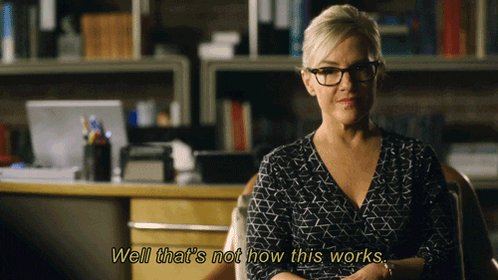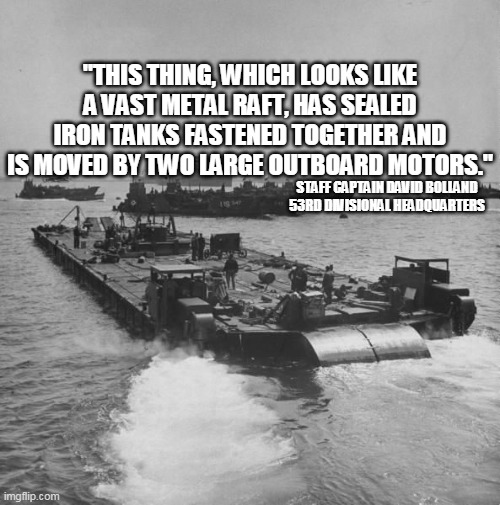#WealthOfNations I.ii is all about the secret sauce origin story: why does the division of labor happen in the first place? #AdamSmith illustrates (in part) with doggos to hold our attention. (I.ii.2,5) 🐶 #WealthOfTweets #SmithTweets #DoggosDontTrade

More from @AdamSmithWorks
The great thing about #AdamSmith is that when he's about to go off on a 65 page tangent, he warns you. Humans, we bring you the DIGRESSIONS ON SILVER! #OhLawdHeComin #WealthOfTweets
Oh King Edward III, it’s adorable that you think you can just decree that servants and laborers become permanently content with wages fixed at the rate they were at five years ago. https://t.co/NtOmttquJ3 (I.xi.e.2) #WealthOfTweets #SmithTweets

He’s already digressing, and he can’t take a minute to share the menu from that famously magnificent feast with us? (I.xi.e.4–5) #WealthOfTweets #SmithTweets
Super Important 18thC Vocab Geekery: When Smith says the price of the quarter of wheat wasn't “supposed to be < 4 oz silver” he doesn’t mean “shouldn't be.” He means “wasn't thought to be.” He’s not approving of fixed prices. (I.xi.e.7) #WealthOfTweets #SmithTweets
So. Many. Wheat. Prices. (But really, Smith is talking about how much wheat it takes to buy a quantity of silver, NOT how much silver it takes to buy a quantity of wheat.) (I.xi.e.1–14) #WealthOfTweets #SmithTweets
Oh King Edward III, it’s adorable that you think you can just decree that servants and laborers become permanently content with wages fixed at the rate they were at five years ago. https://t.co/NtOmttquJ3 (I.xi.e.2) #WealthOfTweets #SmithTweets

He’s already digressing, and he can’t take a minute to share the menu from that famously magnificent feast with us? (I.xi.e.4–5) #WealthOfTweets #SmithTweets
Super Important 18thC Vocab Geekery: When Smith says the price of the quarter of wheat wasn't “supposed to be < 4 oz silver” he doesn’t mean “shouldn't be.” He means “wasn't thought to be.” He’s not approving of fixed prices. (I.xi.e.7) #WealthOfTweets #SmithTweets
So. Many. Wheat. Prices. (But really, Smith is talking about how much wheat it takes to buy a quantity of silver, NOT how much silver it takes to buy a quantity of wheat.) (I.xi.e.1–14) #WealthOfTweets #SmithTweets
OK. Chapter 7 of Book 4 of #WealthOfNations is tough going. It's long. It's serious. It's all about colonies.
We can take comfort, though, in knowing that the chapter #AdamSmith says is about colonies is, in fact, about colonies. (IV.vii) #WealthOfTweets #SmithTweets

Colonies were a vexed subject when #AdamSmith was writing, and they’re even more complicated now. So, before we even get to the tweeting, here’s a link to that thread on Smith and “savage nations.” (IV.vii) #WealthOfTweets
The reason for the ancient Greeks and Romans to settle colonies was straightforward: they didn’t have enough space for their growing populations. Their colonies were treated as “emancipated children”—connected but independent. (IV.vii.a.2) #WealthOfTweets #SmithTweets
(Both these things are in contrast to the European colonies, as we'll see.) (IV.vii.a.2) #WealthOfTweets #SmithTweets
Ancient Greeks and Romans needed more space because the land was owned by an increasingly small number of citizens and farming and nearly all trades and arts were performed by slaves. It was hard for a poor freeman to improve his life. (IV.vii.a.3) #WealthOfTweets #SmithTweets
We can take comfort, though, in knowing that the chapter #AdamSmith says is about colonies is, in fact, about colonies. (IV.vii) #WealthOfTweets #SmithTweets

Colonies were a vexed subject when #AdamSmith was writing, and they’re even more complicated now. So, before we even get to the tweeting, here’s a link to that thread on Smith and “savage nations.” (IV.vii) #WealthOfTweets
We have to pause now, because we have to have a whole new tweet thread on #AdamSmith and \u201csavage nations,\u201d because he\u2019s going to keep using this kind of phrase, so we need to talk about it. #WealthOfTweets #SmithTweets
— @AdamSmithWorks (@adamsmithworks) January 4, 2021
The reason for the ancient Greeks and Romans to settle colonies was straightforward: they didn’t have enough space for their growing populations. Their colonies were treated as “emancipated children”—connected but independent. (IV.vii.a.2) #WealthOfTweets #SmithTweets
(Both these things are in contrast to the European colonies, as we'll see.) (IV.vii.a.2) #WealthOfTweets #SmithTweets
Ancient Greeks and Romans needed more space because the land was owned by an increasingly small number of citizens and farming and nearly all trades and arts were performed by slaves. It was hard for a poor freeman to improve his life. (IV.vii.a.3) #WealthOfTweets #SmithTweets
Book II of #WealthOfNations! It's all about stock! Not the kind you fill with chicken and noodles, but the kind that (according to #AdamSmith) makes commercial society go 'round. (II.intro)
https://t.co/FlxQLGdjbW
#WealthOfTweets #SmithTweets
First! A quick review: without division of labor, every person must provide everything they need. No one accumulates or stores up stock. You do what you can with what you have when you have it. (II.intro.1) #WealthOfTweets #SmithTweets
But once the division of labor develops (remember, it’s the secret sauce!) we have so many wants that we can’t provide for them all ourselves. Most of them are provided for by others, and we purchase their labor with our own. (II.intro.2) #WealthOfTweets #SmithTweets
Here's why this all matters when we think about stock: we can’t purchase other people’s labor until we have completed (and been paid for) our own. So we need a stock of supplies to sustain us until we can finish our work and get paid. (II.intro.2) #WealthOfTweets #SmithTweets
Obviously, we need that BEFORE we start working in this way. So to get the division of labor you need the accumulation of stock. It’s an ingredient of the secret sauce. (All the best sauces are made with stock!) (II.intro.3)
https://t.co/wi1HtrmBPb
#WealthOfTweets #SmithTweets
https://t.co/FlxQLGdjbW
#WealthOfTweets #SmithTweets
First! A quick review: without division of labor, every person must provide everything they need. No one accumulates or stores up stock. You do what you can with what you have when you have it. (II.intro.1) #WealthOfTweets #SmithTweets
But once the division of labor develops (remember, it’s the secret sauce!) we have so many wants that we can’t provide for them all ourselves. Most of them are provided for by others, and we purchase their labor with our own. (II.intro.2) #WealthOfTweets #SmithTweets
Here's why this all matters when we think about stock: we can’t purchase other people’s labor until we have completed (and been paid for) our own. So we need a stock of supplies to sustain us until we can finish our work and get paid. (II.intro.2) #WealthOfTweets #SmithTweets
Obviously, we need that BEFORE we start working in this way. So to get the division of labor you need the accumulation of stock. It’s an ingredient of the secret sauce. (All the best sauces are made with stock!) (II.intro.3)
https://t.co/wi1HtrmBPb
#WealthOfTweets #SmithTweets
More from Economy
True that all the people cherishing the support of IMF or WTO for farm reforms need to cool it down a bit, because that is a model we do not want to emulate to the t in India here.
But here are some issues that deserve to be better discussed by all:
1. People who say we are emulating the Western model of agriculture are way off with this assumption. The process of primitive accumulation, the alienation of their people from their land and the way these 'first-world' countries have pushed their people into Industrial sector +
+ was a merciless phase.
But the same assumption won't work for India, because we have always had a large workforce in agriculture, agri subsidies have always run high, protection has been the hallmark of agriculture and rural representation in the parliament has always been+
+ high. Still, it is our utter failure from the beginning that we have not been able to incentivize the movement of our people to other lucrative sectors.
2. This brings us to the another point of providing MSP on all the commodities and the demand side of the issue that we+
+ conveniently ignore. Here's the thing, Food prices in India have about 65-70% weight in calculating the Consumer Price Index and 25-30% of wholesale price index. These indices affect the general price level in the economy i.e. the inflation. If MSP is offered on all the+
But here are some issues that deserve to be better discussed by all:
WTO backed by Western countries have always wanted to dismantle support systems for farmers in developing countries including India while pumping in federal payments to its farmers. Trump gave 46 billion dollars in 2020 alone to US farmers. pic.twitter.com/0V34ZQQq4J
— Ranveer Singh (@ranveersiiingh) February 4, 2021
1. People who say we are emulating the Western model of agriculture are way off with this assumption. The process of primitive accumulation, the alienation of their people from their land and the way these 'first-world' countries have pushed their people into Industrial sector +
+ was a merciless phase.
But the same assumption won't work for India, because we have always had a large workforce in agriculture, agri subsidies have always run high, protection has been the hallmark of agriculture and rural representation in the parliament has always been+
+ high. Still, it is our utter failure from the beginning that we have not been able to incentivize the movement of our people to other lucrative sectors.
2. This brings us to the another point of providing MSP on all the commodities and the demand side of the issue that we+
+ conveniently ignore. Here's the thing, Food prices in India have about 65-70% weight in calculating the Consumer Price Index and 25-30% of wholesale price index. These indices affect the general price level in the economy i.e. the inflation. If MSP is offered on all the+


























